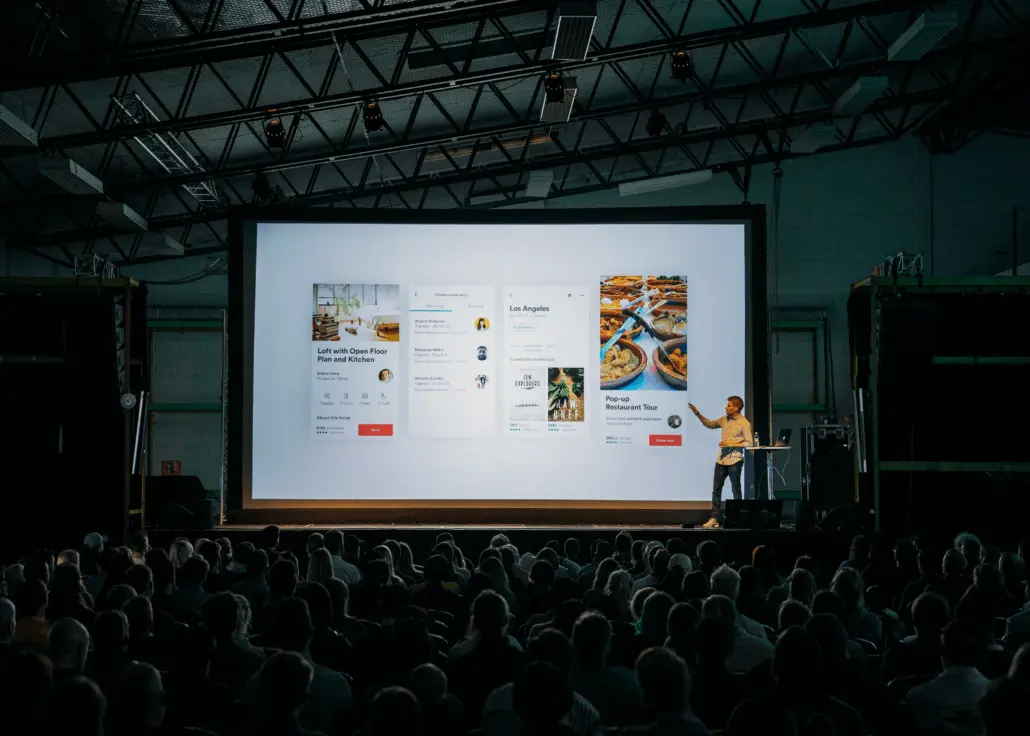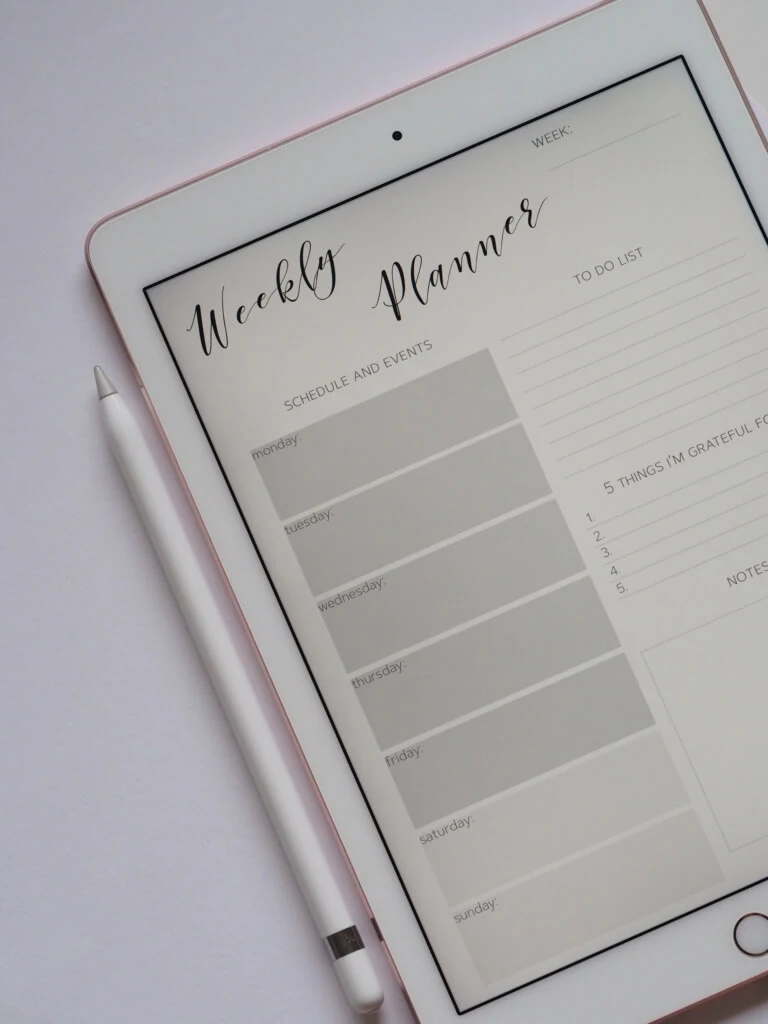Originally published July 26, 2022 , updated on February 16, 2026
Not all types of content drive results for event companies. Some formats barely move the needle. Others, when written with purpose, can help you grow. Think more attendees, faster sell-outs, packed schedules, and even better sponsor interest.
But knowing what kind of content you should create is where most event businesses get stuck. They consider SEO blogs and articles, flyers and brochures, and social media posts, but are unsure which format will work best. Our event content writing experts say you need a mix, based on your goals and where your audience hangs out.
In this blog, we cover 8 content formats you should focus on as part of your event content strategy to grow your event business.
Top Content Formats to Grow Your Events Brand
As an events company, you may promote a concert, corporate summit, wedding fair, or expo. Each of these events has a unique audience to target and a purpose to achieve, and different formats can serve these unique goals. Here are 8 types of content you can use.
1. Website Copy
The first thing you need to have when promoting an event is a website. According to Angage, an event-booking platform, nearly 79% of users research events online. And your website is where they must be able to get all the answers they’re looking for.
With engaging content on your website, you can introduce them to your business. This allows them to:
- Read all about the upcoming events, like venue, hosts, date, and how to get there.
- Understand your brand and its mission, your past events, and attendees.
- Find out who’s speaking or performing and buy tickets.
With authoritative website content, users will feel confident that you know your stuff. When your website language is clear and useful, visitors are more likely to trust you and take action.

2. Social Media Content
Social media thrives on visuals. But the right words encourage people to take action. Many event businesses post eye-catching images, but forget that the caption is where the real connection happens.
A well-written caption can excite your target audience. A short story can hook. And a thoughtful post can turn a scroll into a sign-up. Here’s how good social media content writing can support your events:
- Tell your brand story with behind-the-scenes posts and highlights
- Create buzz with countdowns and contests backed by short-form content
- Drive attendance with persuasive CTAs
Always keep in mind who you’re writing for and what platform you’re writing on. If you’re running a B2B SEO conference, your tone should match the audience. It needs to be professional and sharp, tailored for LinkedIn. But if you’re planning a gaming event, your copy must speak to Gen Z and Millennials. The content needs to be fun and fast-paced, suited to platforms like TikTok and Instagram.
3. Email Content
Despite the popularity of social media and SEO blogs and articles, email marketing still reigns supreme.
The State of Email 2025 report by Litmus makes this clear. Approximately one-third of companies see an ROI above 36:1 with email marketing. Unlike other types of content, the real power of email lies in your ability to personalize it for many different audiences.
Whether you are running a one-day workshop or a multi-city concert, well-crafted emails can fill seats. With a clear and catchy subject line and great copy, they can help build hype and strengthen client relationships.
You can segment your audience to customize your content, addressing past attendees, VIP guests, sponsors, and speakers – and messages that speak to their needs. With the right approach to email content, you can make your audience feel special. This ensures every email is intentional, from early-bird promos to last-minute reminders.
4. Articles and Blog Posts
Articles and blog posts let you dive deeper into topics your audience cares about. With blogs and articles, you can cover all sorts of topics, such as planning tips, industry trends, behind-the-scenes stories, and event highlights.
Blogs and articles for your events business offer you the space to inform, inspire, engage, and stay relevant before, during, and after an event. Plus, well-written blog content helps your event website show up in search results. This means more people discover your brand, not just your event.
Blogs also give you fresh content to share in emails and across social platforms. It’s a low-cost way to keep traffic flowing and build authority in your niche.
5. Brochure Content
Brochures give your audience something to hold onto – literally. Unlike all other forms of event content we’ve discussed, brochures are physical handouts for your audience to keep.
In an online world, this can mean something special for users. With clear, strategic copy, brochures and pamphlets offer quick info like schedules or speaker lists. They are easy to pass around and great for word-of-mouth buzz.
Our event content writers say brochures can complement your digital efforts perfectly.

6. Presentations
Presentations are an effective way to bring your event content to life. By pairing them with a great speaker, you can engage attendees in real time. Along with creative data visualizations, presentations with well-crafted scripts create a lively way to interact with your audience at a function or seminar.
7. Digital PR Content
Media coverage is vital for any event company. It helps promote your events and attract the right attention. But you need the right words to make it happen. A well-written press release helps journalists and bloggers understand what makes your event matter. It can get your brand featured on local news sites and industry publications, and can also earn you valuable backlinks for SEO.
With purposeful press releases and ready-to-publish stories, you can keep the buzz going. This visibility builds trust and attracts new attendees, and gives you great content to reshare on your website and socials.
8. Video Scripting
Video content is one of the most powerful ways to showcase your event – and video scriptwriting plays a bigger role than most people realise.
From promo clips to on-screen captions, the right words make your videos clear and memorable, especially when key insights or standout moments are woven naturally into the conversation.
There are plenty of ways you can use video scripts to promote your events:
- Hype up your next event with short-form teaser videos.
- Share quick interactions with speakers or performers.
- Script UGC content from the previous year’s attendees.
Clear and relatable video scripts can turn your views into ticket sales and drive a high attendee turnout.
Tips for Your Event Content Strategy

- Write for Your Target Audience
Focus your content on what your audience will experience at the event. Talk about what they will potentially learn or gain. Also share clear benefits like “Network with 50+ industry leaders” or “Access exclusive pre-launch demos.” The more relevant the value, the more likely people are to sign up or book.
- Use Urgency the Right Way
Urgency is a powerful motivator when used with care. Event content offers loads of opportunities to encourage fast action.
Include booking deadlines or limited seating in your messaging to encourage a quick response. Early-bird perks are also a great way to persuade prospects to commit.
Example: “Only 20 VIP passes left – book yours before Aug 15 to enjoy a personal networking session.”
- Match Your Tone to the Event
Your content should reflect the personality of your event.
A corporate summit needs a professional, polished voice. A music festival would need a bold, energetic, and fun tone. Keep the audience in mind and adjust the vibe accordingly.
The right tone helps people picture themselves at the event, making them more likely to respond to the CTA button.
Get Expert Event Writers to Draft Your Content
If you’re looking for an event content writing agency with all the experience and skills, look no further. That’s what Goodman Lantern’s event content writing services offer. With a team of event content writers and strategists, we can drive sign-ups for your company.
Post Views: 2061




















